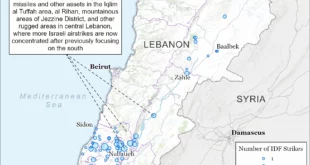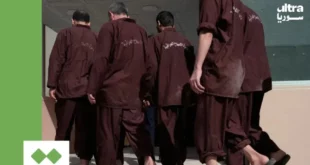Since mid-August of this year, there has been an increase in the number of Iranian and Azerbaijani reports celebrating the continued warming of relations between these neighboring states. Of particular interest is the near-completion of a synchronized power grid between Iran, Azerbaijan, and Russia. Synchronization is a requirement for buying and selling electrical power and boosting strategic cooperation between these states. This sharing of electrical power systems has been a long-term project but should be operational within months.
Bilateral trade between Iran and Azerbaijan has steadily increased over the past several years. The following chart shows Azerbaijani imports from Iran. The projection for 2020 was just under $700M but moderated by the COVID-19 pandemic. “Iran’s trade with Azerbaijan totaled $422.68 million during January-October 2019 to register a 30.7% growth compared with the corresponding period of 2018.”
Bilateral cooperation between Iran and Azerbaijan goes beyond simple trade figures. Within a year of announcing the expansion of Iranian Khodro car manufacturing in Azerbaijan, an Azerbaijan version of the Iranian model, Dena, was on display targeting the Russian market.
Less than a year ago, “As many as six memoranda of understanding have been signed between Iran and the Republic of Azerbaijan in a bid to boost technological cooperation between the knowledge-based companies of the two sides.” This cooperation may be strategic for Azerbaijan, for it can learn from Iranian high-technology military manufacturing and cybersecurity expertise.
Spring of 2019 witnessed the opening of the latest north-south railway line linking Iran and Azerbaijan. “One of the very valuable instances of national and regional cooperation between the two countries is the finalization of the South-North Rail project, linking through to Astara, that we hope will further deepen our relations,” Iranian President Hassan Rouhani said in a meeting with Azerbaijan’s economic minister Shahin Mustafayev in Tehran on March 6, according to the president’s official website.”
Last year, talks began between Azerbaijan and Iran for establishing a joint industrial zone. This effort continues, but the effects of the COVID-19 pandemic has slowed its implementation. This follows similar Iranian-Georgian and Iranian-Armenian initiatives. In a rather challenging goal, the Iranian ambassador to Azerbaijan announced last year that a short term goal in trade turnover between Iran and Azerbaijan is $2B, with an eventual turnover of $5B. The article states, “Iran’s investment in Azerbaijan reached $3.1 billion. There are more than 700 companies with Iranian investments in various sectors in Azerbaijan. The functioning of the Intergovernmental Joint Commission gives a special impetus to the development of relations.” The article also notes, “Azerbaijan and Iran share common values, history and traditions that bound them.”
Just a few days ago, the Islamic Republic News Agency wrote in a September 14 piece entitled, Iran, Azerbaijan see prospects of bilateral ties as bright, growing, “We must strive to strengthen good, brotherly and friendly relations between the people and the government in line with the will of our leaders,” quoting Azerbaijan’s Minister of Transport, Communications and High Technologies of the Republic of Azerbaijan Ramin Guluzade. These announcements are bilateral and not wishful thinking by officials from either side. On September 15, Azernews announced that Azerbaijan, Iran to build new highway bridge over border river.
Relations between Iran and Azerbaijan are complicated because of multiple competing interests. In the short-term, Azerbaijan may be looking for an ally in its dispute with Armenia over Nagorno-Karabakh. However, Iran has exercised even-handed restraint in this dispute and has cordial relations with Azerbaijan and Armenia.
Azerbaijani and Iranian ability to deepen cooperation is commendable considering lingering accusations about Azerbaijan being a staging ground for covert operations against and intelligence gathering on Iran. Iran is very aware of these activities and perhaps is engaged in reciprocal actions in Azerbaijan. One of several reasons why Azerbaijan does not have an embassy in Israel is due to Iranian objection.
The ultimate status of the Joint Comprehensive Plan of Action (JCPOA) is unknown. This agreement on the Iranian nuclear program was signed in mid-2015, between Iran and China, France, Russia, United Kingdom, United States, Germany, and the EU, easing international sanctions on Iran in exchange for a pullback in Iran’s efforts to enrich uranium. The United States unilaterally withdrew from this agreement in 2018. If there is a new US administration in January and a reinvigorated JCPOA, one would expect an abrupt expansion in Iranian-Azerbaijani trade. If not, Azerbaijani-Iranian relations should continue warming and expanding.
 Eurasia Press & News
Eurasia Press & News



